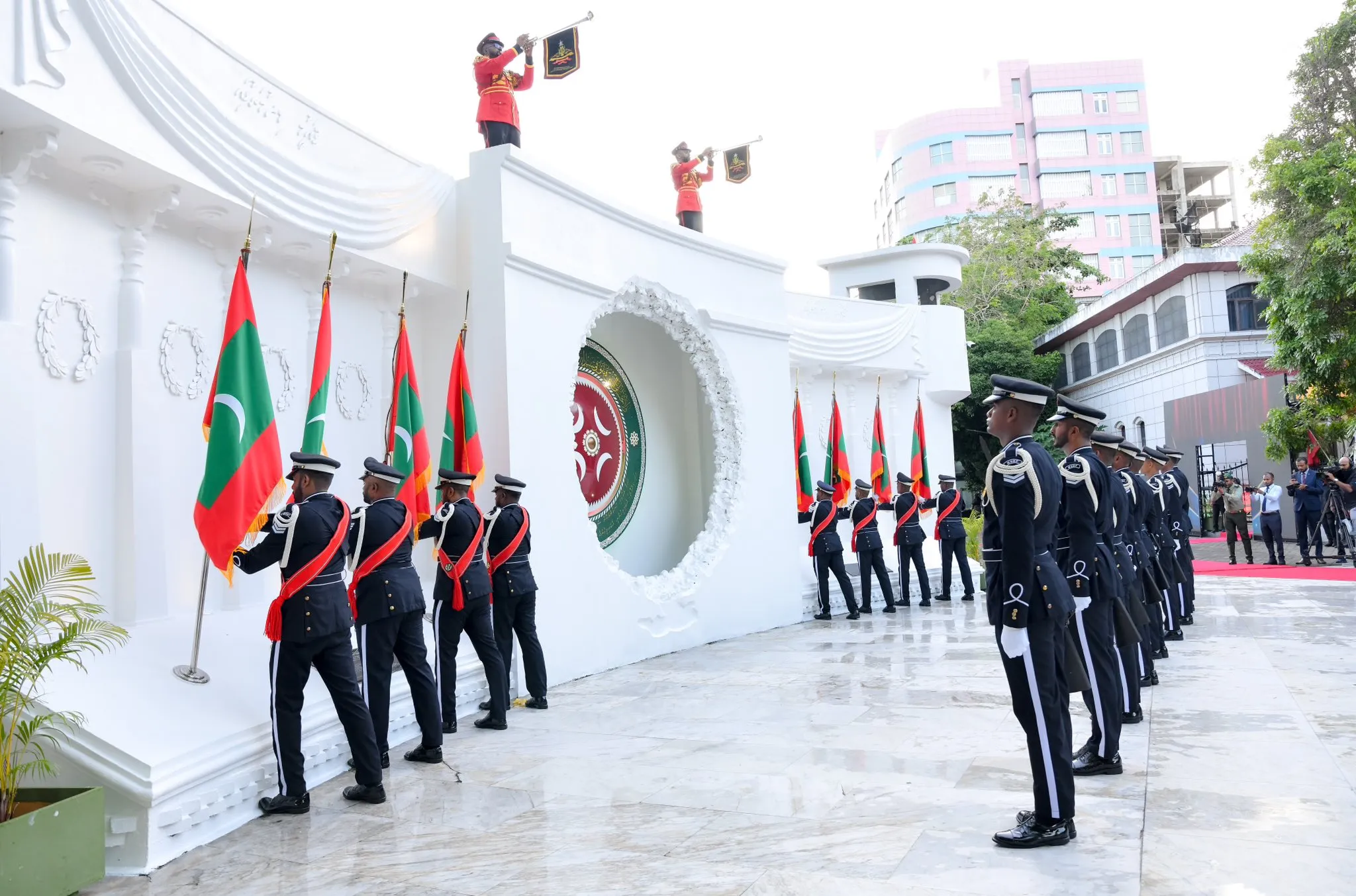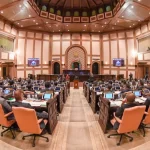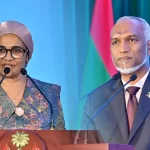MALE’, Maldives, The bullet holes are gone, plastered over years ago, but the memory bleeds fresh at Male’s National Art Gallery. Here, under the soft museum lights, spent ammunition casings tell a story that shaped a nation.
President Dr. Mohammed Muizzu’s footsteps echoed through the gallery this morning as he paused before a weathered wall fragment – a remnant of the army barracks that bore witness to the pre-dawn violence of November 3, 1988. The exhibition, featuring over 200 artifacts, marks the day when this tranquil island nation faced its darkest hours.
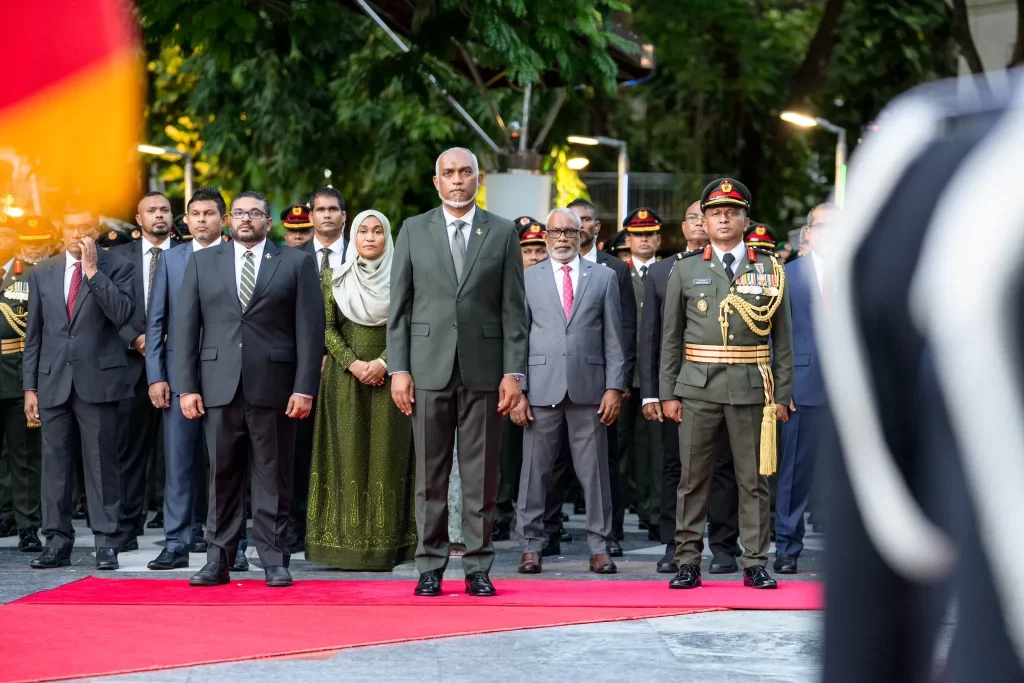
The morning began with traditional Fajr prayers, followed by a solemn flag-raising ceremony at the November 3 memorial, where the President and First Lady Sajida Mohammed led state dignitaries in remembrance. But it’s the exhibition that brings the day’s full horror into focus.
The Invasion Unfolds
In the pre-dawn darkness of that November morning in 1988, while Male’ slept, a deadly plot was unfolding. At approximately 4:00 a.m., 80 heavily armed Sri Lankan Tamil mercenaries, accompanied by three Maldivian conspirators, slipped into the capital’s harbor. Their mission: to overthrow the government in a swift, brutal coup.
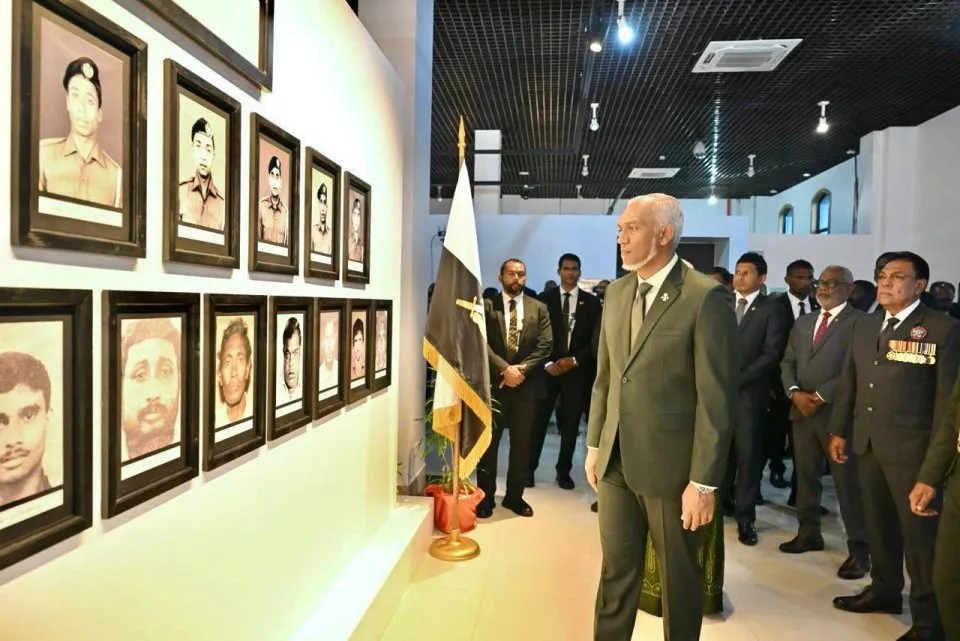
The operation’s commander, identified only as Vasanthi, led the first assault team. Their target: the army barracks, a strategic strongpoint in the heart of Male’. What they didn’t expect was the resistance that would meet them.
“They thought we would crumble,” recalls Brigadier General retd. Ibrahim Mohammed Didi, on that morning. “They were wrong.”
The first shots crackled across Carnation Magu, the street leading to the barracks. The response was immediate and fierce, throwing the mercenaries’ carefully laid plans into disarray. At the northwest gate of the President’s Office, they encountered their first obstacle – soldier Abdullah Zuhair, who would become one of the day’s first casualties.
The Hero’s Stand
In the chaos that followed, it was a 19-year-old soldier who would write himself into Maldivian history. Hussain Adam, barely out of his teens, held his position against the assault team led by mercenary Tamilian Silvier Sankar. His resistance bought crucial minutes for the military to mobilize, though it would cost him his life.
“He knew what he was doing,” says Brigadier General retd. Didi, voice thick with emotion. “He knew what was at stake.”
The Battle Intensifies
By 4:30 a.m., the invasion had evolved into a three-pronged assault. Near the Islamic Center, a massive explosion rocked the capital as the mercenaries breached the army barracks wall – now commemorated as the November 3 monument. But their advantage was short-lived.
In a decisive moment, Vasanthi, attempting to press the advantage, moved forward along Kaneer Magu. His fatal mistake was underestimating the Maldivian forces’ resolve. A counterattack brought him down within the first hour, dealing a crushing blow to the mercenaries’ command structure.
The Masterminds
Behind the attack lay a web of betrayal. Maldivians Abdullah Lutfi, alongside conspirators Ahmed Nasir, Abdullah Shahid, and Karo Abbas, had orchestrated the invasion. Their plan, months in the making, unraveled in hours against the unexpected resistance of their countrymen.
“The first hour was crucial,” explains Didi “Our soldiers’ response in those initial moments determined the fate of our nation.”
Today’s Remembrance
The exhibition, running through November 9, offers three daily viewing sessions, drawing crowds of both those who remember and those who wish to understand. Young students press their faces against display cases holding remnants of that violent dawn, while veterans stand silent before photographs of fallen comrades.
In the quiet of the gallery, beneath the carefully curated lighting, the artifacts speak of a morning when this peaceful nation faced its trial by fire. They tell of ordinary men who became heroes, of a people who refused to surrender, and of a dawn that, though it began in darkness, ended in triumph.
